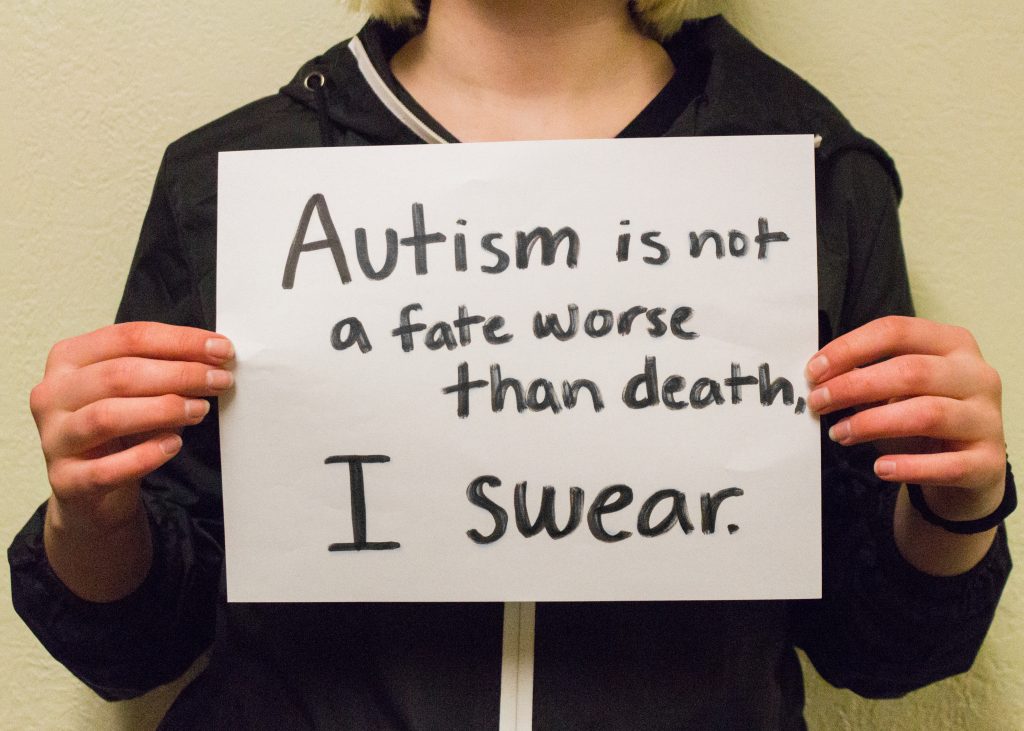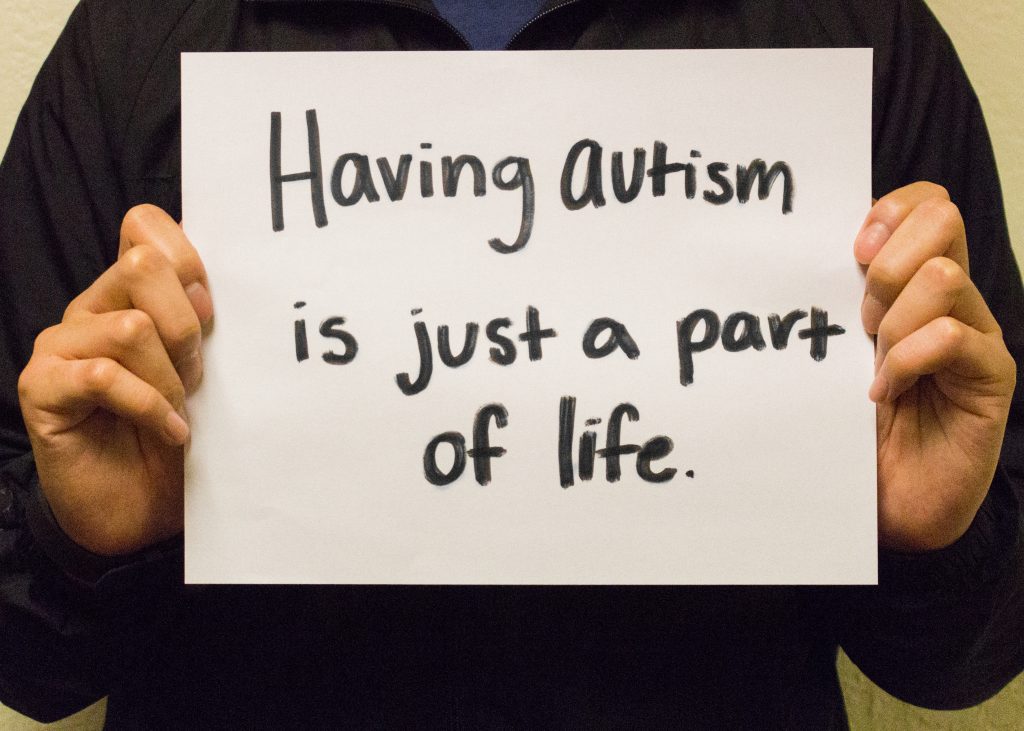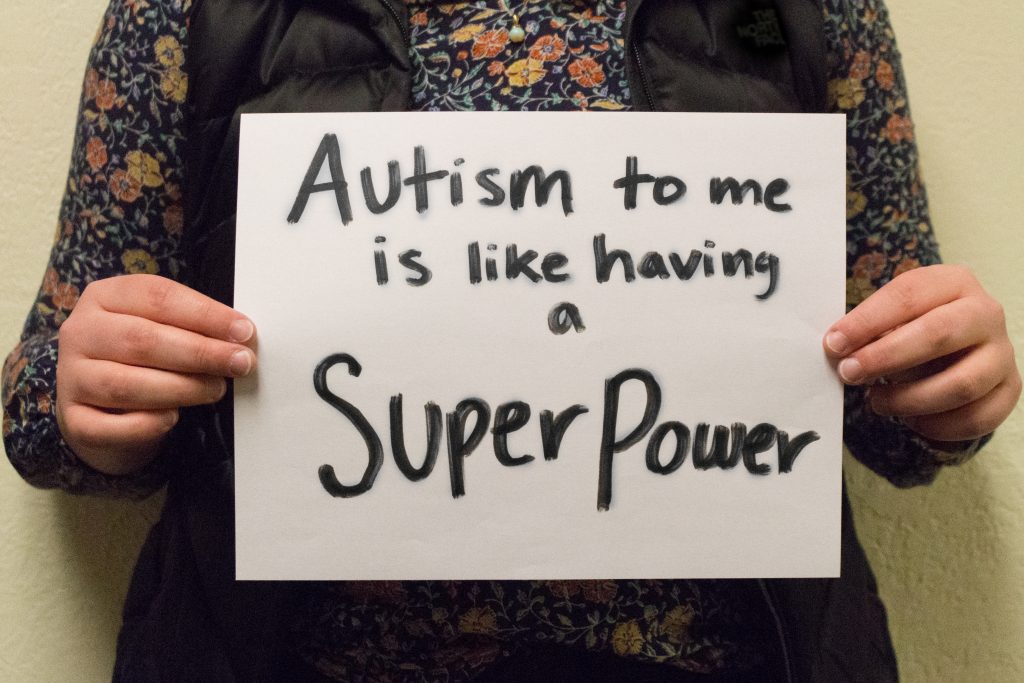Bailey Thompson | News Editor
April is Autism Acceptance/Awareness Month, a time each year when people with autism share their stories in order to spread both awareness and acceptance of autism — a condition that the Center for Disease Control and Prevention estimates that 1 in 59 people has.
According to the American Psychiatric Association, “Autism spectrum disorder (ASD) is a complex developmental condition that involves persistent challenges in social interaction, speech and nonverbal communication and restricted/repetitive behaviors.”
In order to learn more about autism, I spoke with a number of Western students with autism who shared their stories with me.
Katie:

Katie, who wasn’t diagnosed with autism until age 20, is a firm believer in the need for further research about autism. Since Katie’s autism was not recognized because she did not exhibit certain signs of autism — many of which are more stereotypical in males with autism — she is an advocate for people with autism who may not fall into this narrow mold.
“Autism in general is not very well researched, and it’s definitely not very well researched in anyone who isn’t a straight, white male,” Katie said.
Having also researched the intersection between autism and LGBTQ identities, Katie explained that sex education is often inferior for people with autism because they are erroneously not thought of as sexual beings; this problem is added onto by the fact that LGBTQ sex education is rarely taught as well.
Katie also described the social and stimulatory challenges she faces because of her autism.
“Every 10 minutes I’m outside without earplugs, it means 30 minutes of wanting to nap,” said Katie. “It’s the lights and sounds and there’s a lot of leaf blowers outside. Then, there’s lots of people talking, cars going by — it’s a lot all the time.”
In her view, people’s outlook on autism is often too negative, also.
“Autism is not a fate worse than death, I swear. I actually like how autism affects me most of the time,” said Katie. “Yeah, it does suck sometimes… but it allows me to focus on things for a long time and it allows me to do things that most other people might consider boring or repetitive.”
Katie then imparted a final piece of wisdom.
“When we listen to folks who have different perspectives, it makes our society better,” said Katie.
Kevin:

After earning his AAOT degree, Kevin transferred to Western with the goal of majoring in visual communication design. And, while there have been some challenges in getting to graduation, he has utilized the resources around him in order to be successful.
“I got in touch with disability services to get accommodations that would be best for my learning experiences,” said Kevin. “They really do come in handy, especially when you’re doing exams or quizzes. Those guys can really come in handy whether it’s at a university or a community college.”
Despite the fact that things like speaking and maintaining eye contact can be difficult for him, Kevin knows that having autism is an important part of who he is.
“Having autism is just part of life; there’s nothing really you can do,” said Kevin. “It’s not like being cancer-free. It just sticks with you for your entire life. Being autism-free would kind of take away your memories. If you do that, then I’ve forgotten who I was.”
Something that Kevin has found joy in is competitive swimming, an activity his mom originally signed him up with to help him with his autism.
At Western, one thing that has made him feel empowered having some people go out of their way to support people with disabilities.
“I know one of the members of the disabilities club is just an ally,” said Kevin. “She just likes being there to help students with disabilities in this club.”
Finally, while some of the other students preferred the term acceptance, Kevin has a positive association with the original wording.
“I like awareness more,” said Kevin. “Autism Awareness Month is a strong phrase for autistic people.”
Lyvonne:

Lyvonne is a non-traditional student at Western who went back to school after getting married and having a family. As a mom to a son who also has autism, Lyvonne is passionate about fighting for acceptance in the world that her son is growing up in.
While people can sometimes be quick to devalue skills of people with autism, Lyvonne described a few of the ways she has seen autism in a positive light.
“Autism to me is like having a super power,” said Lyvonne. “My autism makes me hyper-aware of what other people are doing around me. It also causes me to be hyper-focused on my school work and incredibly grades driven, which can cause me to put a lot of undue stress on myself. But my autism also lets me really get into my favorite books, movies or television shows.”
One such example that Lyvonne has observed in her son is that, even though he is only seven, he is already studying algebra.
One thing that Lyvonne wished people knew about autism was that it is a fluid spectrum, not a static one — meaning some days are easier than others.
“There are days where I can make a speech in front of a classroom full of people I don’t know, and then there are days where I can’t even make eye contact with my physician at a checkup,” said Lyvonne.
With this in mind, Lyvonne has a clear hope for the future: acceptance.
“People are aware that those with autism exist; what many fail to think about is how many situations push us out to the fringes of society,” said Lyvonne. “People are aware of our existence, but they don’t accept us in so many ways.”
Striving to combat the narrative that her son will be a drain on society or that employers will be unwilling to hire her due to her autism, Lyvonne explains that awareness isn’t enough. Acceptance is the vital next step that we need to take as a society.
[fruitful_alert type=”alert-info”]Editor’s note: Last names were kept private at the request of some of the students interviewed.[/fruitful_alert]
Contact the author at howlnews@wou.edu
Photo courtesy of Ashlynn Norton

